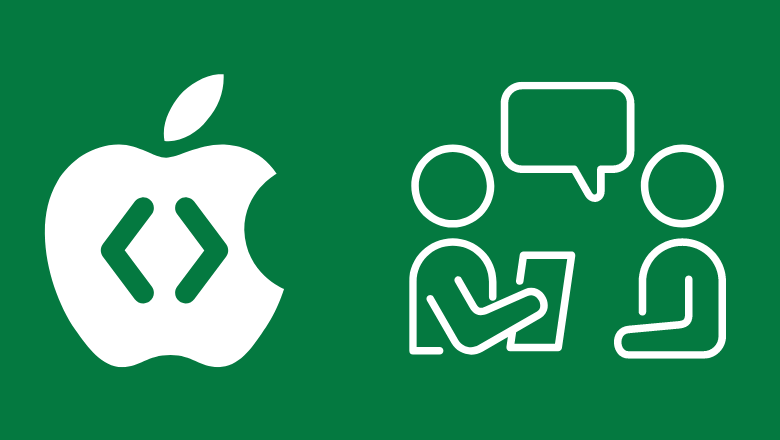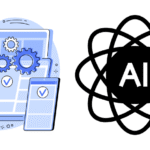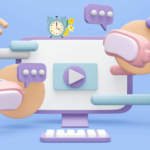How to prepare for an iOS developer interview and land your dream job in tech!

Step 1: Understand the Interview Process
Key Takeaway: Grasping the interview process sets you up for success.
Before diving into the technical aspects of iOS development, it’s crucial to comprehend the interview process. A typical interview journey consists of several stages:
- Phone screen: HR representatives assess your general background, motivation, and communication skills.
- Coding challenge: Employers gauge your coding abilities through an online test or take-home assignment.
- Technical interviews: One or more face-to-face meetings with developers or team leads, examining your coding and problem-solving skills.
- Cultural fit interview: Employers evaluate your compatibility with their team, values, and working style.
Exemplify: In the technical interview, you might be asked to implement a simple app, debug a code snippet, or discuss app architecture.
Pro tip: Familiarize yourself with the company’s values and culture by visiting their website and social media pages. It’s one of the best ways on how to prepare for an iOS developer interview.
Step 2: Review the Basics
Key Takeaway: Solidifying your understanding of core concepts is essential.
A strong foundation in iOS development fundamentals is crucial. Begin by revisiting these core concepts:
- Swift programming language
- UIKit
- Autolayout and Interface Builder
- Model-View-Controller (MVC) design pattern
- Networking and APIs
- Core Data and persistence
- Multi-threading and concurrency
Exemplify: You may be asked to design a simple app, requiring knowledge of UIKit and Autolayout.
Pro tip: Create flashcards or use online resources to test your understanding of these topics.
Step 3: Tackle Common Coding Questions
Key Takeaway: Practicing common coding problems boosts your problem-solving skills.
Enhance your coding prowess by tackling frequently asked coding questions in iOS interviews:
- String manipulation
- Array and dictionary operations
- Algorithms and data structures (e.g., sorting, searching, trees, and graphs)
- iOS-specific coding problems (e.g., implementing a UITableView or handling API calls)
Exemplify: Interviewers might ask you to implement a custom UICollectionView layout.
Pro tip: Use online platforms like LeetCode or HackerRank to practice coding problems.
Step 4: Master App Architecture and Design Patterns
Key Takeaway: Adeptness in app architecture demonstrates your ability to create maintainable and scalable apps.
Interviewers often probe candidates on their understanding of app architecture and design patterns. You should be able to compare and contrast various patterns, such as:
- Model-View-ViewModel (MVVM)
- Model-View-Presenter (MVP)
- VIPER
Exemplify: Interviewers could ask you to refactor a code snippet from MVC to MVVM.
Pro tip: Study open-source projects on GitHub to examine real-world implementations of these patterns.
Step 5: Enhance Your Knowledge of iOS Ecosystem and APIs
Key Takeaway: Familiarity with iOS ecosystem and APIs displays your adaptability to different projects.
Being well-versed in the iOS ecosystem and APIs showcases your ability to handle diverse projects. Some essential frameworks and APIs include:
- Core Location and MapKit
- AVFoundation and Core Audio
- Core Graphics and Core Animation
- HealthKit and ResearchKit
Exemplify: Interviewers might inquire about your experience with Core Location and MapKit if their app relies on geolocation.
Pro tip: Browse Apple’s documentation and experiment with different APIs to broaden your understanding.
Step 6: Showcase Your Soft Skills
Key Takeaway: Strong soft skills reflect your potential as a team player and leader.
In addition to technical prowess, companies value candidates
with well-developed soft skills. Here are some qualities you should demonstrate during the interview process:
- Communication: Clearly articulate your thoughts, ask relevant questions, and actively listen to others.
- Problem-solving: Exhibit your ability to analyze a situation, identify potential solutions, and choose the most effective one.
- Collaboration: Show your willingness to work with others and learn from their experiences.
- Adaptability: Prove your capacity to adjust to new situations and embrace change.
Exemplify: While discussing a project during the interview, highlight how you collaborated with team members to overcome a specific challenge.
Pro tip: Participate in mock interviews with friends or online platforms to hone your soft skills.
Step 7: Prepare a Portfolio of Projects
Key Takeaway: A compelling portfolio showcases your skills and experience.
A well-curated portfolio of iOS projects can significantly boost your chances of landing the job. Include diverse projects that demonstrate your proficiency in various frameworks, APIs, and design patterns. Your portfolio should:
- Highlight your unique skills and strengths
- Showcase your passion for iOS development
- Include a mix of personal, academic, and professional projects
Exemplify: If you have experience with ARKit, include an augmented reality project in your portfolio to impress potential employers.
Pro tip: Publish your apps on the App Store or share the code on GitHub, making it easily accessible to interviewers.
Step 8: Stay Up-to-Date with Industry Trends
Key Takeaway: Keeping up with industry trends reflects your enthusiasm and dedication to the field.
Being informed about the latest advancements in iOS development is crucial to stay competitive in the job market. Regularly engage with:
- Apple’s official announcements and releases
- iOS development blogs and forums
- Podcasts and YouTube channels
- Developer conferences (e.g., WWDC)
Exemplify: Employers may inquire about your thoughts on SwiftUI, a modern UI framework introduced by Apple.
Pro tip: Set up Google Alerts or subscribe to newsletters to receive regular updates on iOS development news.
Step 9: Network with Other iOS Developers
Key Takeaway: Networking can lead to job opportunities and help you learn from others.
Forge connections with fellow iOS developers to exchange knowledge, discuss challenges, and uncover job opportunities. Here are some networking strategies:
- Attend local iOS development meetups
- Join online communities and forums
- Connect with developers on social media platforms like LinkedIn and Twitter
Exemplify: Participating in a hackathon allows you to collaborate with other developers and showcase your skills.
Pro tip: Seek mentorship from experienced developers to gain invaluable insights and guidance.
Do you make these mistakes with how to prepare for iOS developer interview
Mistake 1: Lack of Preparation
One of the most common mistakes candidates make is not preparing adequately for the interview. This can manifest in several ways, including not reviewing core concepts, coding problems, or app architecture.
Solution: Review the job description, research the company and their iOS development projects, and practice coding problems and app architecture questions. Be sure to have a strong understanding of core concepts, including Swift programming language, UIKit, Autolayout, and networking.
Mistake 2: Not Understanding the Company’s iOS Development Stack
Candidates who lack knowledge of the company’s iOS development stack and their preferred frameworks and APIs can make a poor impression on the interviewer.
Solution: Research the company’s iOS development stack by reviewing their job description, browsing their website, and examining their iOS development projects on GitHub. Familiarize yourself with their preferred frameworks and APIs, such as Core Data and Core Location.
Mistake 3: Poor Communication Skills
Inability to communicate effectively can hinder a candidate’s success in the interview process. Poor communication can manifest as nervousness, lack of confidence, or difficulty expressing thoughts and ideas.
Solution: Practice articulating your thoughts and ideas in a clear and concise manner. Participate in mock interviews with friends or online platforms to improve your communication skills.
Mistake 4: Inability to Work in a Team
iOS development is a collaborative effort, and candidates who demonstrate an inability to work in a team can hinder their chances of landing the job.
Solution: Highlight your experience working in a team by discussing your contributions to group projects or open-source iOS development projects. Emphasize your ability to collaborate, listen actively, and provide constructive feedback.
Mistake 5: Overconfidence in Coding Skills
Overconfidence in coding skills can be a red flag for interviewers. Candidates who are overconfident may struggle to work collaboratively or be unwilling to learn new techniques.
Solution: Balance confidence with humility. Showcase your coding skills by tackling common coding problems, but also highlight your willingness to learn and collaborate.
Mistake 6: Poor Time Management Skills
Poor time management skills can indicate an inability to meet deadlines or complete projects on time, which is a crucial skill in iOS development.
Solution: Practice time management skills by setting deadlines for coding challenges or personal projects. Use productivity tools like calendars or task management software to stay organized and on schedule.
Mistake 7: Lack of Enthusiasm
Lack of enthusiasm can indicate a lack of passion for iOS development, which can be a crucial factor in hiring decisions.
Solution: Showcase your passion for iOS development by discussing your favorite iOS development projects or your involvement in the iOS development community.
Mistake 8: Poor Code Organization
Poor code organization can indicate a lack of attention to detail or difficulty working with complex codebases.
Solution: Practice organizing your code by using coding best practices like naming conventions, commenting, and modularization. Use Xcode’s source control features to manage code versions effectively.
Mistake 9: Inability to Solve Real-World Problems
Inability to solve real-world problems can indicate a lack of creativity or problem-solving skills.
Solution: Practice solving real-world problems by building projects that solve practical issues or contribute to open-source iOS development projects.
Mistake 10: Lack of Knowledge of iOS Ecosystem (cont.)
Solution: Stay up-to-date with the latest advancements in the iOS ecosystem by following Apple’s official announcements and releases, participating in iOS development forums and podcasts, and attending developer conferences like WWDC. Familiarize yourself with essential frameworks and APIs, including Core Location and MapKit, AVFoundation and Core Audio, Core Graphics and Core Animation, and HealthKit and ResearchKit.
Mistake 11: Not Highlighting Accomplishments
Candidates who fail to highlight their accomplishments can miss out on opportunities to showcase their skills and experience.
Solution: Discuss your accomplishments by sharing your contributions to previous iOS development projects, your involvement in open-source iOS development projects, or your experience in developing apps that have been published on the App Store.
Mistake 12: Not Asking Questions
Candidates who fail to ask questions can come across as uninterested or unprepared for the interview.
Solution: Prepare a list of questions beforehand to ask the interviewer about the company, their iOS development stack, or the team you will be working with. Asking relevant questions can demonstrate your interest in the company and your enthusiasm for the position.
Mistake 13: Not Admitting When You Don’t Know Something
Candidates who fail to admit when they don’t know something can come across as overconfident or unwilling to learn.
Solution: Be honest about your knowledge and experience. If you don’t know the answer to a question, admit it, and offer to research and provide a solution later.
Mistake 14: Not Demonstrating Your Ability to Learn Quickly
Candidates who fail to demonstrate their ability to learn quickly can come across as rigid or unable to adapt to different projects and development environments.
Solution: Highlight your ability to learn quickly by discussing your experience in learning new technologies or frameworks quickly, or by sharing examples of how you overcame challenges by learning new skills.
Mistake 15: Not Following Up After the Interview
Candidates who fail to follow up after the interview can miss out on opportunities to demonstrate their interest in the position or ask further questions.
Solution: Follow up with the interviewer by sending a thank-you note or email, expressing your gratitude for the opportunity to interview, and reiterating your interest in the position. Ask if there are any further questions or information you can provide to support your application.
Wrapping up about How to prepare for iOS developer interview
As an iOS developer, preparing for an interview can be a daunting task, but with the right approach and mindset, you can increase your chances of success.
By following the nine steps outlined in this article, you can prepare for your iOS developer interview by reviewing core concepts, practicing coding problems, showcasing your soft skills, and building a compelling portfolio of iOS projects. It’s also essential to stay up-to-date with the latest advancements in the iOS ecosystem, network with fellow iOS developers, and demonstrate your enthusiasm and adaptability for iOS development.
Charlotte Williams is a talented technical author specializing in cross-platform app development. With a diverse professional background, she has gained valuable experience at renowned companies such as Alibaba and Accenture. Charlotte’s journey in the tech industry began as a mobile UX designer back in 2007, allowing her to develop a keen understanding of user-centric app design.
Proficient in utilizing frameworks like React Native and Flutter, Charlotte excels in building cross-platform mobile apps and imparting her knowledge to aspiring developers. She pursued a degree in Computer Science at Cornell University, equipping her with a strong foundation in the field. Residing in San Francisco with her three beloved dogs, she finds solace in hiking the hills and connecting with nature. Charlotte’s passion for app development, combined with her dedication to sharing expertise, makes her an invaluable resource in the world of cross-platform app development.







